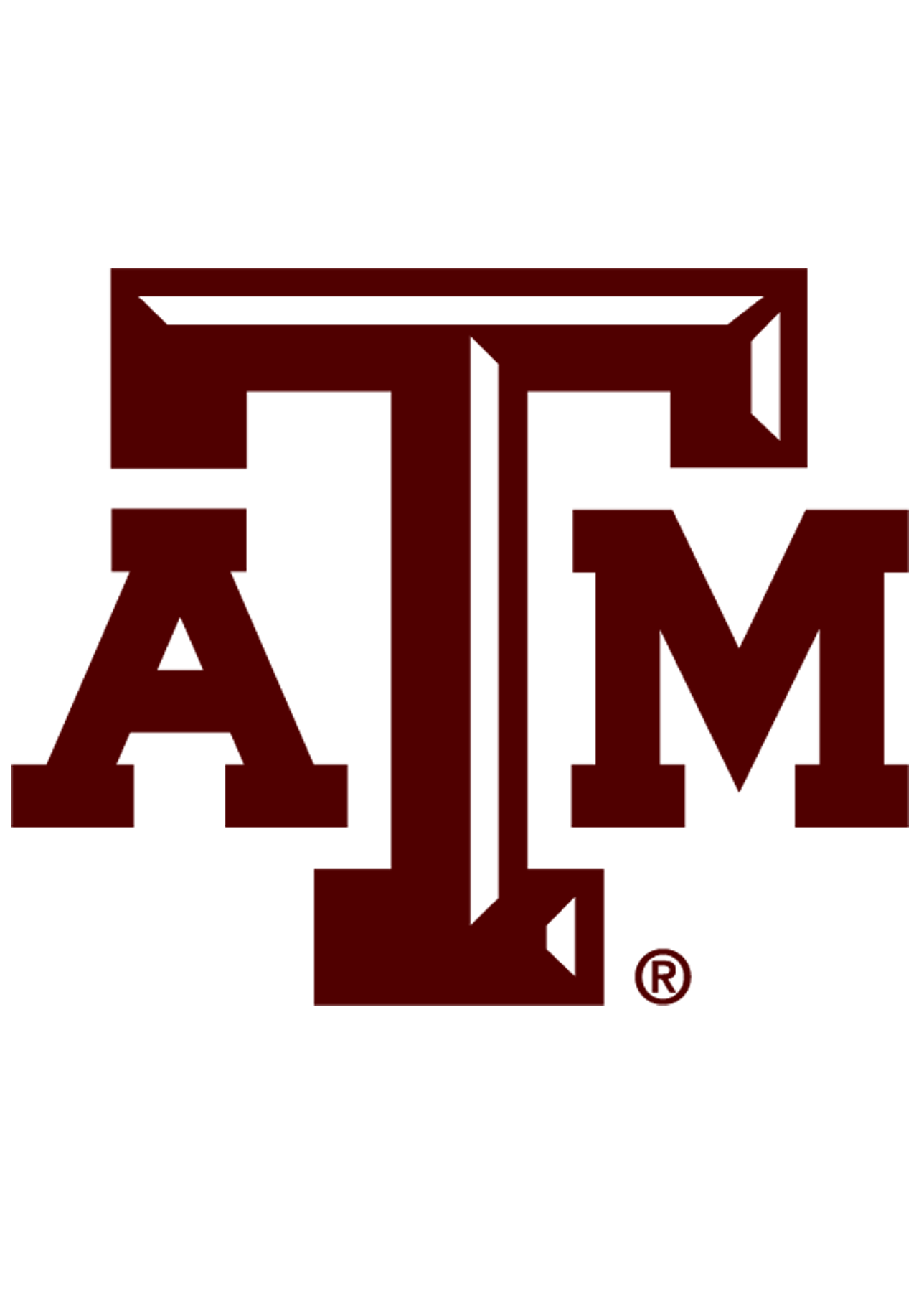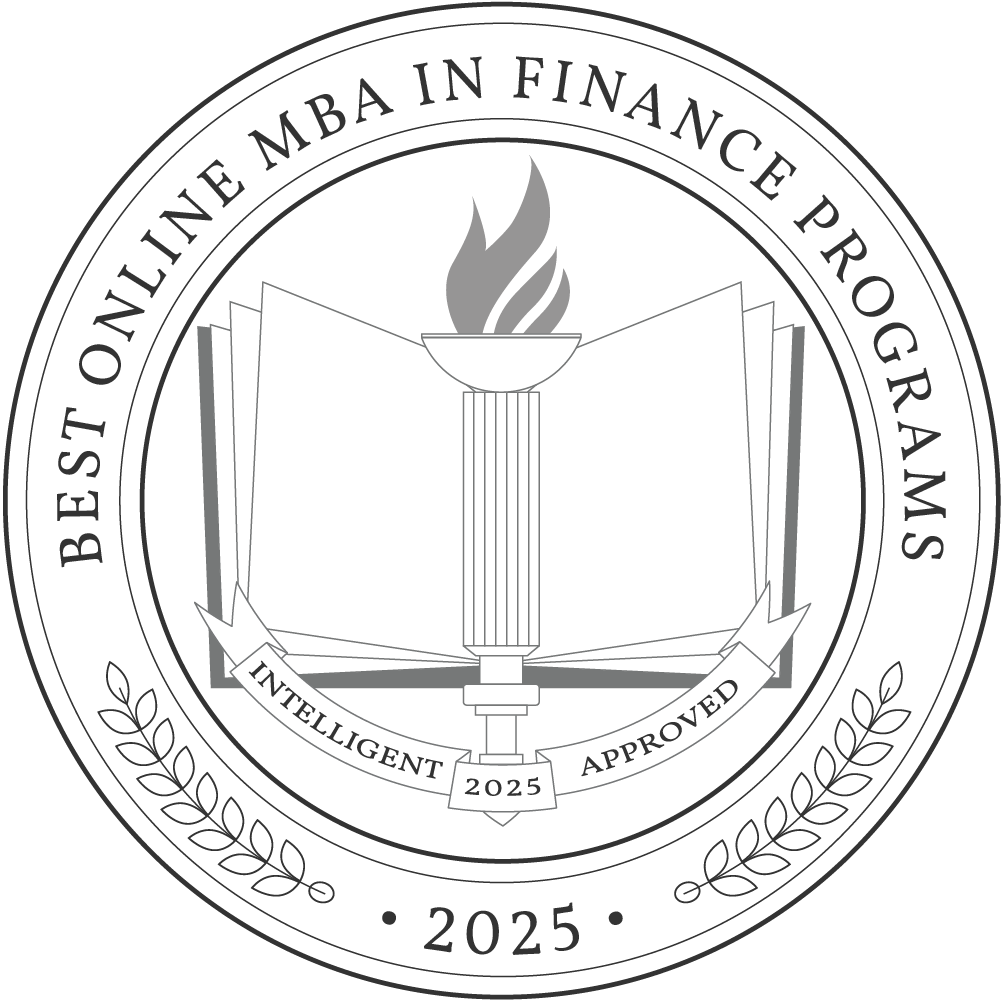An online MBA in finance may be precisely what you need to succeed in this field. These programs prepare students for various coveted roles, including financial analyst, investment banker, and financial manager, offering salaries ranging from $99,890 to $156,100 annually. With flexible study options, these programs can be completed in as little as 18 months, allowing working professionals to balance their careers and education. While costs can vary depending on the institution, the average tuition for a graduate degree is $20,513 per year.
We interviewed Michelle Pickett, director of Northern Illinois University’s Academic Advising Center, for her insights on finding the right MBA program and aligning your degree with your career aspirations.
Why Trust Us
The Intelligent.com Higher Education Team is dedicated to providing students with independent, equitable school and program rankings and well-researched resources. Our expert-driven articles cover topics related to online colleges and programs, paying for school, and career outlooks. We use data from the U.S. Department of Education’s College Scorecard, the National Center for Education Statistics, and other reputable educational and professional organizations. Our academic advisory team reviews content and verifies accuracy throughout the year for the most current information. Partnerships do not influence rankings or editorial decisions.
- Analyzed over 2,000 national, accredited, and nonprofit colleges and universities
- 800+ rankings pages are reviewed and updated yearly
- Content is informed by reputable sources, surveys, and interviews with academic advisors and other experts
- Over 100 data points are reviewed for accuracy and quality throughout the year, including sources
How we rank schools
Our list features the best online MBA in Finance degree programs at top colleges nationwide. Each school featured is a nonprofit, accredited institution — either public or private — with a high standard of academic quality for post-secondary institutions.
We evaluated each school’s program on tuition costs, admission, retention and graduation rates, faculty, reputation, and the student resources provided for online students. We collected data from trusted sources like the National Center for Education Statistics, individual school and program websites, school admissions counselors, and other data sources. Then, we calculated the Intelligent Score on a scale of 0 to 100 based on the following criterion:
Academic Quality:
- Admission rate versus enrollment rate
- Retention rate of students who return after year one
- Accreditation status (regional and programmatic)
- Nonprofit status, both private and public institutions
Graduation Rate
- Overall graduation rate
- Total number of currently enrolled students, including diversity metrics
- Student-to-faculty ratio
Cost and ROI
- In-state and out-of-state per-credit tuition rates and fees
- Required credits to graduate
- Earning potential after graduation
- Availability of federal student loans, scholarships, and other financial aid options
Student Resources
- Available student services for online-only and hybrid programs
- On-campus amenities like tutoring centers and the number of libraries
Read more about our ranking methodology.
Best 49 Online MBA in Finance Programs
FiltersInstitution Type
Status
- Intelligent Score
- Alphabetically By University Name
- Acceptance Rate
- Enrollment
- In-state Graduate Tuition
- Out-of-state Graduate Tuition
- In-state Undergraduate Tuition
- Out-of-state Undergraduate Tuition

University of North Carolina at Chapel Hill
Intelligent Score: 99.66In-state: $7,019
Out-of-state: $34,198
In-state: $10,552
Out-of-state: $10,552
SAT: 1280-1490
ACT: 28-33
$2,025
Online, On-Campus
Association to Advance Collegiate Schools of Business
62

Texas A&M International University
Intelligent Score: 98.74In-state: $8,395
Out-of-state: $36,849
In-state: $6,775
Out-of-state: $6,775
SAT: 1160-1380
ACT: 26-32
$367
Online
Association to Advance Collegiate Schools of Business
30

University of Maryland
Intelligent Score: 98.07In-state: $8,824
Out-of-state: $34,936
In-state: $13,158
Out-of-state: $13,158
SAT: 1270-1480
ACT: 30-34
$1,733
Online, On-Campus
Association to Advance Collegiate Schools of Business
54-56

Villanova University
Intelligent Score: 97.48In-state: $56,730
Out-of-state: $56,730
In-state: $20,619
Out-of-state: $20,619
SAT: 1320-1460
ACT: 30-33
$1,263
Online, On-Campus, Hybrid
Association to Advance Collegiate Schools of Business
48

Babson College
Intelligent Score: 96.55In-state: $54,144
Out-of-state: $54,144
In-state: $89,550
Out-of-state: $89,550
SAT: 1270-1450
ACT: 27-32
$1,990
Online, On-Campus
Association to Advance Collegiate Schools of Business
45

PennState World Campus
Intelligent Score: 96.48In-state: $15,025
Out-of-state: $24,413
In-state: $22,464
Out-of-state: $22,464
SAT: 1070-1300
ACT: 24-29
$1,248
Online, On-Campus
Association to Advance Collegiate Schools of Business
48

University of Delaware
Intelligent Score: 95.16In-state: $12,730
Out-of-state: $34,160
In-state: $34,164
Out-of-state: $34,164
SAT: 1150-1330
ACT: 25-30
$950
Online, On-Campus
Association to Advance Collegiate Schools of Business
44

University of North Carolina Wilmington
Intelligent Score: 95.05In-state: $7,019
Out-of-state: $34,198
In-state: $10,552
Out-of-state: $10,552
SAT: 1280-1490
ACT: 28-33
$517
Online
Association to Advance Collegiate Schools of Business
36

Webster University
Intelligent Score: 94.73In-state: $28,500
Out-of-state: $28,500
In-state: $13,500
Out-of-state: $13,500
SAT: 1078-1260
ACT: 20-27
$752
Online, On-Campus
Accreditation Council for Business Schools and Programs
39-45

UMass Amherst
Intelligent Score: 94.15In-state: $15,791
Out-of-state: $35,779
In-state: $14,014
Out-of-state: $14,014
SAT: 1200-1390
ACT: 27-32
$925
Online, Hybrid
Association to Advance Collegiate Schools of Business
45

UF Warrington School of Business
Intelligent Score: 93.37In-state: $4,477
Out-of-state: $25,694
In-state: $10,770
Out-of-state: $10,770
SAT: 1290-1460
ACT: 29-33
$1,208 - $1,500
Online, On-Campus
Association to Advance Collegiate Schools of Business
32-48

Syracuse University
Intelligent Score: 93.34In-state: $53,432
Out-of-state: $53,432
In-state: $40,392
Out-of-state: $40,392
SAT: N/A
ACT: N/A
$1,872
Online, On-Campus
Association to Advance Collegiate Schools of Business
54

The University of Texas Rio Grande Valley
Intelligent Score: 92.71In-state: $11,448
Out-of-state: $40,032
In-state: $12,028
Out-of-state: $12,028
SAT: 1210-1470
ACT: 26-33
$472
Online, On-Campus
Association to Advance Collegiate Schools of Business
36

Lehigh University
Intelligent Score: 92.05In-state: $54,790
Out-of-state: $54,790
In-state: $27,000
Out-of-state: $27,000
SAT: 1260-1433
ACT: 29-33
$1,295
Online, On-Campus
Association to Advance Collegiate Schools of Business
36

Bethel University
Intelligent Score: 91.65In-state: $38,870
Out-of-state: $38,870
In-state: $11,700
Out-of-state: $11,700
SAT: 1040-1338
ACT: 21-28
$665
Online, On-Campus, Hybrid
Accreditation Council for Business Schools and Programs
42

Johns Hopkins University
Intelligent Score: 91.28In-state: $54,160
Out-of-state: $54,160
In-state: $57,010
Out-of-state: $57,010
SAT: 1470-1560
ACT: 34-36
$1,800
Online, On-Campus
Association to Advance Collegiate Schools of Business
54

University of Arizona
Intelligent Score: 91.18In-state: $10,990
Out-of-state: $33,273
In-state: $11,938
Out-of-state: $11,938
SAT: 1090-1350
ACT: 21-29
$1,250
Online
Association to Advance Collegiate Schools of Business
45

Fort Hays State University
Intelligent Score: 90.79In-state: $4,140
Out-of-state: $14,580
In-state: $3,726
Out-of-state: $3,726
SAT: N/A
ACT: N/A
$374
Online, On-Campus
Higher Learning Commission
33
How To Choose an Online MBA in Finance Degree Program
Choose your area of study
Many programs will allow you to select a concentration and focus your studies on a particular niche in this field. So, consider your career goals and strengths within the realm of finance when choosing your program.
For example, students with an analytical mindset may be well-suited for a concentration in investment analysis, while natural leaders will thrive in financial management. Research the specializations offered within MBA programs and consider the courses and curriculum content.
Additionally, seek advice from professionals already working in your field of interest to gain insights into the industry’s future trends and potential opportunities. This can highlight a specialization you are an excellent fit for but have yet to consider. “Researching the growth opportunities for a career is important and helps individuals understand the full scope and opportunities for an area they are interested in pursuing,” says Pickett. “Understanding this information is just one factor individuals can use to make a well-informed decision about their career path.”
Research schools and programs
Once you’ve chosen your area of specialization, conducting thorough research on schools and programs is crucial to finding the best institution for your needs. Start by identifying reputable universities and business schools offering an online finance MBA in your chosen specialization. You should also look into each option’s faculty and the services provided to online students.
Only apply to institutions that have been approved by a DOE-recognized regional accrediting organization, such as the New England Commission of Higher Education or Northwest Commission on Colleges and Universities. These organizations evaluate schools to ensure they provide students with a high-quality education. Those who attend a school that isn’t regionally accredited may be unable to access financial aid or transfer credits to another institution if needed.
Ideally, your MBA in finance program will also be accredited by a respected industry group like the Association for the Advancement of Collegiate Schools of Business (AACSB) or the Accreditation Council for Business Schools and Programs (ACBSP). These programmatic accrediting organizations have particularly high standards for business education.
To learn more about any schools that you’re interested in, Pickett recommends the following:
- Check out the school’s admissions website
- Take a virtual tour
- Browse the school’s course catalog
- Visit the webpage of the academic department you are interested in
- Research the school’s support services for students
- Explore their housing and dining options
- Learn about their financial aid options
Prepare for tests and applications
To effectively prepare for tests and applications, consider following these critical strategies. First, familiarize yourself with the test format, such as the GMAT or GRE, and create a study schedule that allows for regular practice. Utilize official study materials and practice exams to proactively identify your strengths and weaknesses. Some students benefit from enrolling in test preparation courses or working with a tutor to receive personalized guidance. It’s worth noting there are many online MBA programs that don’t require GMAT scores, though.
Application requirements vary by school and program. Undergraduate transcripts are typically required, and you may also need to submit letters of recommendation and a personal statement. Always contact an admissions counselor to ensure you have the most accurate information regarding requirements and deadlines.
Select your program
Before making your final decision, review your needs and goals again. Do you plan to attend school full-time or part-time? Do you want your program to be as online as possible, or are you fine with a hybrid program that has a fair amount of in-person requirements? Some programs offer asynchronous courses, which can be completed at your own pace, while others only offer synchronous courses, which involve remotely attending lectures and completing assignments at the same time as other students — which of these two online learning formats do you prefer? Your school should accommodate your scheduling needs and learning preferences.
Determine how you’ll pay for your degree
Be sure to speak to financial aid counselors at the schools you’re interested in for the most accurate and specific information about program cost. While paying for an online MBA can initially feel overwhelming, many resources are available to help alleviate the financial burden of pursuing this advanced degree.
Explore financial aid options, including federal student aid, by completing the Free Application for Federal Student Aid (FAFSA). Check with your institution to see what scholarships they offer specific to your MBA program or related to finance. Additionally, scholarship and grant options may be available from professional organizations and private foundations. Some students can balance part-time work to help finance their education, and many MBA students utilize employer tuition reimbursement programs as a funding source.
What Can You Expect From an Online MBA in Finance Degree Program?
An online MBA in finance provides a well-rounded education designed to equip you with the necessary knowledge and expertise to succeed in the finance industry. Coursework covers financial analysis, investment management, corporate finance, risk management, and financial strategy. Students learn to analyze financial statements, evaluate investment opportunities, assess financial risks, and make strategic financial decisions.
Earning an online degree offers a certain degree of flexibility that makes it possible for working professionals to balance their education with other responsibilities, and an online MBA in finance is no exception. “The online experience is more individual and personalized,” says Pickett. “Students considering enrolling in an online college should ensure that they’re focused and motivated and can practice good time management and self-discipline skills, especially for self-paced programs.”
In an online learning environment, students engage in virtual collaborations, group projects, and discussions with classmates and faculty. Additionally, some programs may offer networking events, guest lectures, or virtual workshops to enhance the learning experience and foster connections with industry professionals. Most full-time students can complete all of the degree requirements in 18 months to two years, but some accelerated options may enable students to finish in less time.
Potential courses you’ll take in an online MBA in finance program
- Corporate Finance: A popular core course for finance majors, this class explores the financial decisions made within corporations, including capital budgeting, capital structure, dividend policy, and working capital management. Students learn to evaluate investment projects, optimize capital structure, and assess the financial impact of various decisions on the firm’s value.
- Managerial Accounting: Another standard course for finance majors, managerial accounting teaches students how to use accounting information for internal decision-making and planning. Students learn about cost concepts, budgeting, cost-volume-profit analysis, and performance measurement.
- Strategic Financial Management: Also known as “Corporate Financial Strategy,” this class is typically offered as an elective. Students focus on the financial aspects of strategic decision-making within organizations while learning how financial considerations shape corporate strategy.
- Global Financing and Emerging Markets: Another popular elective in finance curricula, this class focuses on the complexities of international finance and the unique challenges and opportunities presented by emerging markets. Students study foreign exchange markets, international capital budgeting, and global investment strategies.
- Mergers and Acquisitions: While mergers and acquisitions can be offered as a topic in financial strategy courses, some institutions offer this course as its own class. Students learn the fundamental concepts and strategies involved in corporate mergers, acquisitions, and divestitures. They study valuation methods, deal structuring, negotiation tactics, and post-merger integration.
What Can You Do With an Online MBA in Finance?
Career outlook
Although banking may be the first industry that comes to mind when you think of finance, your online MBA in finance prepares you for positions in just about any field in business and industry, as well as the nonprofit world.
Here are some common career paths you might follow:
- Top executive — Coordinate the work of an organization by establishing goals, overseeing activities, and appointing department heads and managers.
- Median annual salary: $103,840
- Projected employment growth (through 2032): 3%
- New job openings projected: 311,600 annually
- Financial manager — Maintain the financial health of an organization by directing investment activities and developing plans for meeting long-term financial goals.
- Median annual salary: $156,100
- Projected employment growth (through 2032): 16%
- New job openings projected: 69,600 annually
- Financial analyst — Evaluate investment opportunities, assess the financial health of businesses, and provide recommendations for optimal financial strategies.
- Median annual salary: $99,890
- Projected employment growth (through 2032): 8%
- New job openings projected: 27,400 annually
Online MBA in Finance Degree Frequently Asked Questions
How do I apply to an online MBA in finance degree program?
Applying to online MBA programs can be intimidating, but many institutions have similar application requirements. Access the online application form by visiting the program’s official website. Check to ensure you meet the program’s admission requirements, which typically include a bachelor’s degree, minimum GPA, and work experience. Then, prepare the necessary materials, including transcripts, letters of recommendation, a statement of purpose, and GMAT or GRE test scores. Don’t hesitate to reach out to an admissions counselor when in doubt. They can lend valuable insights into the admissions process, clarify any uncertainties, and ensure you meet all requirements before you apply.
How much does an online MBA in finance degree cost?
Programs on the more affordable side of the spectrum see an average cost of $302.80 per credit hour, which is relatively inexpensive. However, these degrees can quickly become pricey, with some schools reaching $70,000 or higher per year. It’s also important to consider the additional costs of an online degree, such as technology fees, textbooks, and course materials.
While online programs may save on expenses like commuting and accommodation, they may have other costs, such as online platform fees or residency requirements. On the other hand, in-person programs may have higher tuition due to on-campus facilities and resources. Therefore, it’s crucial to research and consider all associated costs before committing to an online MBA degree program.
How long does it take to earn an online MBA in finance degree?
On average, an online MBA in finance can be completed in 18 months to three years. Many online programs offer more flexibility than their on-campus counterparts, allowing students to complete degree requirements independently. However, if a student chooses to enroll part-time, the program will typically take longer to complete. The total number of required credits also impacts this timeline, with many programs requiring a range of 36 to 60 credit hours to graduate.
Is an online MBA in finance worth it?
Although many entry-level positions in finance are available to those with a bachelor’s degree in business or finance, an MBA in finance can open the door to higher-level positions, sometimes as part of an organization’s leadership team.
Many positions in the finance world are growing faster than average, making the field a good choice for individuals who want to enter or advance in a growing profession. The need for personal financial advisors, for example, is expected to grow by 15%, much faster than average, according to the BLS. That would mean that positions would be available for 50,900 trained financial advisors by 2031.
Earning your degree online can be a solid choice for many students — it increases the number of institutions available to study at and may offer financial savings. There is little stigma around earning a degree online — instead, it shows potential employers that you are self-motivated and organized, with excellent time management skills.


